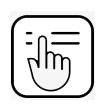
Every person will experience OCD differently. Knowing the signs is the first step towards health and recovery.
Intense anxiety or distress
Fear of contamination by disease
A need for symmetry or orderliness
Excessive hand washing
Asking for reassurance
Repeating words in their head

Treatment for OCD- contamination OCD
Cleaning or Contamination obsessive-compulsive disorder mainly focuses on fear of contamination or uncleanliness.

Obsessive compulsive disorder treatment for ruminations
Rumination-based OCD is an offshoot of intrusive thought-based OCD, yet what sets it apart are the types of thoughts.

Obsessive compulsive disorder psychotherapy for harm OCD
Harm OCD involves extreme paranoia that one’s carelessness can harm others or oneself.

Therapy for OCD - Hoarding OCD
Hoarding OCD involves compulsively buying or hoarding things that they might need in the future.

Psychotherapy for OCD- Hair-pulling disorder
Hair-pulling disorder causes a compulsive urge to pull hair from the body, including eyelashes, eyebrows, or anywhere else.

Treatment for OCD- skin picking disorder
Excoriation disorder is the compulsive urge to scratch or pick their skin.
Our team of experts provide best treatment for ocd . We believe in helping an individual identify unhelpful thinking patterns and replace them with positive affirmations.


855-722-4422

“My OCD is a speed bump, not a barrier, to happiness”

Amelia Diane Coombs
We aim to provide a safe space for you to be yourself and be your support system.

Find A Counselor

Check Your Insurance

Book Your Online/In-person Therapy Session

Meet our licensed therapist in person who will work to provide you with customized treatment plans based on your needs.
Interact with our OCD specialist from your comfort place. We’ll provide you with all the support to overcome your OCD-related intrusive thoughts.
Find Your Therapist
Our Therapists | Insurance Coverage | Services Offered | Privacy
OCD, or Obsessive Compulsive Disorder, is a mental health disorder that often causes an individual to feel they must complete or act out certain behaviors in order to reduce anxiety. These behaviors are known as compulsions and can range from mild to severe. Thankfully, the best OCD treatment in the world is available for those struggling with OCD. Cognitive Behavioral Therapy (CBT) and Exposure and Response Prevention (ERP) are two of the most well-known treatment methods to help individuals regain control over their lives. CBT focuses on helping an individual identify unhelpful thinking patterns and replace them with positive affirmations. ERP involves repeated exposure to uncomfortable situations until the individual learns how to cope without acting out their compulsive behaviors. Ultimately, obsessive compulsive personality disorder treatment should be tailored specifically for each individual to ensure the best results possible.
For individuals with OCD, the obsessions and compulsions can be extremely distressing and consume a lot of time and energy. The experience of OCD can vary greatly from person to person, but some common features include:
It's important to note that while everyone experiences intrusive thoughts and worries at times, it's the frequency, intensity, and distress caused by these thoughts and behaviors that distinguish OCD from normal worry or concern. If you or someone you know is struggling with symptoms of OCD, it's important to seek treatment for OCD. Some psychiatrists can even recommend obsessive compulsive disorder medication for severe symptoms. you can always find help online, all you have to do is search, ‘OCD therapy near me’ or ‘OCD clinic near me’, ‘OCD treatment centers near me’ or ‘OCD psychologist near me,’ ‘OCD help near me,’‘therapists specializing in OCD near me’ ‘find obsessive compulsive personality disorder treatment,’ ‘OCD doctors near me’ and ‘treatment for OCD near me’.
Signs and symptoms of OCD may vary from person to person. Identifying the signs is the right step toward the path to recovery. Here are few common signs and symptoms of OCD you be aware of:
The few types of ocd that every individual who struggle from obsessive compulsive disorder must be aware of include:
Please note that severe symptoms may warrant OCD medication as a part of obsessive compulsive personality disorder treatment. Thus, psychotherapy for OCD may also come into the picture. You can search ‘OCD treatment centers near me’ or ‘OCD help near me’ online.
The types of obsessive compulsive disorder treatment available at our therapy center
You can always find the right obsessive compulsive disorder treatment and psychotherapy for OCD who is specially certified and licensed in your state from various online and offline platforms. Lifebulb provides you with the best treatments for OCD, where our expert therapists can assist you in the right direction towards building a healthy and quality life. We provide both in-person and virtual therapy services for obsessive compulsive disorder. Contact Lifebulb to book an appointment through our 24x7 active helpline. You can always find us online, simply search ' OCD specialist near me’ or OCD treatment near me’ or ‘best treatment for OCD’ or ‘OCD treatment centers’ or ‘best OCD treatment in the world’ or ‘therapy for ocd.’ to get the best obsessive compulsive disorder treatment in your area.
Look over our expansive list of carefully curated resources to learn about OCD related issues.